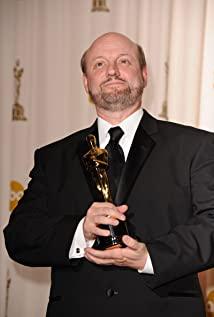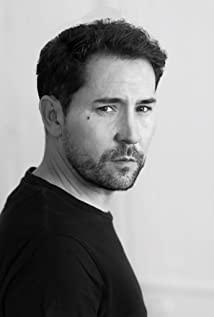It is never too late to realize that "true love has no fear" when we get old...
Since the history of democracy, the world's first female president was the Argentine President Isabel Martínez de Isabel, who took office in 1974. Perón), but this record shows not the glory of Argentina, but the irony.
Isabel Perón was originally the vice president. The previous president was Juan Perón, who had been in exile for 18 years (Note 1). Perón met Isabel who was 30 years younger than him when he was in exile. They became husband and wife; in March 1973, the 77-year-old Juan Veron returned from Spain to take office again because of his advanced age and his body was overwhelmed. He died of illness on July 1 the following year, and Isabel took over as president according to the constitution , to create this record; however, after taking over for less than two years, in March 1976, she was overthrown by the army commander-in-chief Jorge Rafael Videla, who was appointed by herself. This coup is also the most recent coup in Argentina so far.
The military dictatorship led by Videla carried out a brutal rule of white terror, and all opponents were arrested or killed. According to statistics, during Videla's rule, at least 10,000 to 30,000 people were arrested, killed or disappeared, and hundreds of thousands of people were forced into exile. The Argentine military government collapsed in 1983 after several leaders. Its last leader, Leopoldo Galtieri, even thought that launching the Falkland Islands campaign could divert people's dissatisfaction with the military government. As a result, the war defeat only accelerated the collapse .
In 1983, Argentina was finally re-elected by the people to organize a government by a civilian president, but there seemed to be no signs of improvement in domestic politics, economy and other aspects: inflation, economic recession, and huge foreign debts weighed on the government; Megne, who came to power in 1989 Carlos Menem was in power until 1999, and he worked hard to implement market economy and privatization policies for 10 years. Although Argentina's inflation was eliminated, the external debt and unemployment rate continued to rise, wages and productivity were low, and the society was rich and poor. The gap widened, and after Menem stepped down, he fell into corruption and arms-trading scandals, and judicial lawsuits have continued to this day.
The Secret in Their Eyes, which won the 2010 Oscar for Best Foreign Language Film, was written and directed by Argentine director Juan José Campanella. Looking back at Argentina in 1974, the whole film combines the historical reality with the rape and murder mystery, and is accompanied by the love separation and life ups and downs between the male and female protagonists. It makes memories and truth, reality and history constantly agitated dialectically. Whether or not they understand Argentine history and society, the audience is almost always moved and mixed with emotions. It is not a blessing to win this award.
[Mysterious Eyes] is adapted from the novel "The Secret" (The Secret) by Argentine writer Eduardo Sacheri. The actor Benjamin (Ricardo Darín) serves as a court clerk. The opening of the film is a few scenes. Jamin's memory in 1974, but then appeared in 1999 when he erased all the text in the notebook—the whole film is about the correction and correction of memory, and its purpose is to arouse everyone's courage to face the truth— ─It seems that Benjamin, who has been through vicissitudes of life, is trying to write, but he wrote the word "TEMO" (fear) on a piece of paper between half-dreams and half-awakes (the fear has been internalized to this point!); Afterwards, he met and talked with his former female boss, and two Although people have passed middle age, the eyes of the meeting are still full of thousands of words.
Back in time 25 years ago, when his younger female boss, Harvard-graduated prosecutor Elena (Soledad Villamil) arrived on her first day, he was immediately fascinated by her beauty, and she seemed to have something. Induction——You can see it from the eyes of the two of them.
Immediately afterwards, after a satirical play in which several judicial bureaucrats pushed each other to clarify the case division process, Benjamin was forced to take on a rape and murder case. A young and beautiful woman was raped and killed in her bedroom. Benjamin. Ming looked into her eyes and was puzzled: what caused such a pure and beautiful innocent young woman to die so miserably? And who could be so vicious and vicious? The swollen and deformed eyes of the young woman seemed to convey some kind of accusatory message, and Benjamin's sense of justice and responsibility made him unable to ignore that eye, and it was unforgettable for a long time.
However, just like most of the third world countries of the same period, Argentina's judicial bad habits made another prosecutor quickly catch two suspects and have already confessed; Benjamin heard something wrong, he went to visit the two unfortunate workers, Of course, he was tortured. The one who was beaten the most was a foreign migrant worker from Bolivia. Benjamin looked at his swollen eyes, and he didn’t need to say a word. country) metaphors are stronger.
After making a big move to resist the injustice of arresting people and solving cases (think of the Jiang Guoqing case that broke out recently in Taiwan), Benjamin decided to catch the real culprit himself, but the reason why he was able to grasp the suspect Gao Mei in time Z (Javier Godino), thanks to his assistant Pablo (Guillermo Francella), a heavy-drinking partner who is actually a mentor and a mentor to Benjamin, who usually needs Benjamin to help him pay his drinking bill ( Note 2), persuaded to fight, sent home, but his in-depth thinking about important matters is not ambiguous; the director who has been immersed in the American film and television industry for a long time and is familiar with the Hollywood narrative method has been very successful in creating this role: let him wear a rough Framed glasses, utter nonsense from time to time, humorous witty words like beads and insight into life are quite Woody Allen style, not only can relieve the sometimes tense and sometimes awkward atmosphere, but also adjust the rhythm, the suspect should be regarded as he caught. .
Pablo found an important insight when he reviewed Gomez's home letter to his mother many times in the tavern: "A man's life can change anything, a man can change his appearance, where he lives, his Family, his girlfriend, his faith, even his God, but the only thing he doesn't change is his passion for the things he loves."
From these letters, Pablo found that football was Gomez's greatest (Actually, he and Benjamin should be able to find out when they entered Gomez’s room for the first time, because there was nothing long in his room but there were posters of football stars on the wall), so Benjamin and Pablo has come to the football stadium many times to wait and see. Although there are problems with the method, the director did not give up the painstaking efforts, and finally let them run into Gomez by chance, and tried his best to arrest him.
The director's scene scheduling, over-the-shoulder photography, and coherent long-lens follow-up in this scene created the most bloody scene in the film: first, a bird's-eye view of the entire football field from the air, and then the camera pulled all the way down to the match on the field, and then Turn to Benjamin and Pablo in the auditorium (a little bit of digital skills are used here), and after they meet Gomez, they start chasing. At this time, the camera follows and shoots, Gomez jumps out of the toilet and jumps off The high wall, entering the arena, the police surrounded him from all directions and knocked him down, but you thought you could finally breathe a sigh of relief, the case was solved?
In terms of confirming the real murderer, this film can just be cross-referenced with Korean director Bong Joon-ho's Memories of Murder. The difference is that the two police officers in Memories of Murder, although their thinking reflects traditional and Modern conflicts, but they all actually represent the positive forces of the country, and always regard "finding out the real murderer" as a duty, while the resistance and negative roles in the state apparatus are hidden and invisible, and the main axis of the whole film is simply locked in the investigation process. .
[Mysterious eyes] It is obviously much more complicated. Benjamin is also determined to "find out the real culprit". Instead of applauding, encouraging, and supporting assistance, the state has hampered it in every possible way. "Ferocious", the superiors not only indulged them, but also recruited them when they saw that they had useful talents - this country was able to distort justice to such a degree at the time, no wonder that military coups were commonplace.
The murderer in [Memories of Murder] is a genius criminal carefully set by the director (this film is based on a serial murder case in South Korea for which no murderer has been found so far), and the method of crime is almost seamless. The strength of science and technology can't be helped; the suspect who was finally found is very strong in mind. No matter how hard the two police officers tried, it was difficult to break through their defenses, so the feeling of powerlessness was particularly heavy.
However, the suspect in [Mysterious Eyes], Gomez, is not such a criminal genius, and although there is no strong evidence, Elena deliberately devalues Gomez's sexual ability with her glamorous sexual attraction, and successfully breaks through The suspect was on guard; when Gomez was taunted by Elena, he became so angry that he took off his pants and exposed his penis on the spot. This action was tantamount to committing a crime.
And when Gomez was determined to be sentenced to prison, he was released because he was called up to serve as President Isabella's entourage. ), Gomez turned things around overnight, and even got a gun! The theory that Benjamin and Elena rushed to find out was invalid. When they left in frustration, it happened that they met in the elevator. , with a look of "what can you do to me", Benjamin's self-esteem was wiped out at this time, such as being castrated and castrated (consistent with his incompetence and inability to pursue love at the time), and the police officer in "Memories of Murder" wanted to confront the railway tunnel. The scene of the suspect being lynched is also a sigh of relief.
As for Gomez before he exposed the bird and then drew the gun, the repetition of the two actions before and after and the metaphor of the country's sins are self-evident.
Gomez's love for the beautiful young woman and Benjamin's love for Elena also have a contrasting effect. The director used the two people in the photo to look at the favorite woman with the same eyes as an analogy to highlight the relationship between Benjamin and Gomez. subtle differences between.
However, Benjamin has to fight not only the cunning and domineering murderers, the corrupt rulers of the country's judicial system, but also the social pressure or class gap that blocks the love between him and Elena, which is more "timely" to him. It was a serious blow. After all, Elena's family was revered and rich, and there was a marriage contract at the time. Benjamin weighed himself. Although he had a good impression of each other, there was really not enough social conditions for him to dare to woo; The same is true, but he chooses to use violence to cross the divide and break the barrier, but he can gain power through the use of violence.
As for Benjamin, who became weak and fearful in the face of power (violence), even his partner Pablo could not save him: One night after Gomez's release, he took a drunk Pablo home, only to be met by an unknown The bandits broke in and shot and killed him, and Pablo became his scapegoat. This time not only lost to the end, but also lost her life. Elena hurriedly sent Benjamin out of Buenos Aires. This departure was 25 years (even Pablo's funeral did not dare to attend. )!
The director presented this scene with unreserved sensationalism: Elena and Benjamin came to the platform with nervous and miserable expressions, but the previous emotional conflicts were still unresolved, and the future was hopeless, so the two could only be with each other Embracing each other, then Benjamin got on the train, the train started slowly, Elena chased the train on the platform, and even stamped her hands through the glass; the train was getting faster and faster, Benjamin came to the last car , looking at her through the car window, the sadness of parting with the sweetheart is created to the highest point, it is simply a classic reproduction of the screen of "Doctor Zhivago"!
However, the director then ingeniously asked Elena in 1999 to directly point out that this was a fictional fragment, while Benjamin insisted that it was true, "If it is true, why didn't you just take me away?" (without saying anything. "Are you still a man?") Elena's sentence was as decisive as a knife, stabbing straight to the core, Benjamin was instantly speechless, it turned out that 25 years later, he is still the same virtue!
The director asked the male and female protagonists to deny the memory of 1974 in the real dialogue in 1999, which is of great significance in the whole film: the memory is fragmented, filtered, and may even be a fake and feel-good imagination. Time-shifting turns falsehood into trueness, which can only be clarified by re-conversing between the parties; Benjamin's life has ended, his career has failed, his love has failed, and his friendship has been ruined. Things will only be sensational and false like many Hollywood movies), what is the meaning of his life?
So the words of Ricardo (played by Pablo Rago), the husband of the murdered young woman, echoed in his heart again: "How can a person live a life without meaning?" Benjamin always remembered how Ricardo loved his beautiful wife. , He had never seen that kind of loving eyes in his life, and then he remembered Pablo's life insight about "passion", and he decided to show Ricardo this novel as well, in order to check each other's memories, As a result, he discovered the biggest secret of the whole case (and the most shocking breaking point of the film), which also became an opportunity for him to turn his life around.
Ricardo was deeply occupied by a sense of revenge after his wife was killed. He did not support the death penalty (there was no death penalty in Argentina at the time of the crime in 1974), because it was not the retribution that the perpetrator deserved, since it is impossible for the rapist to be punished. Having tasted the taste of being raped to death, he deeply believed that letting the perpetrator live a blank and meaningless life is the greatest punishment, but in order to achieve this, he also paid his own blank and meaningless life-he put His "enthusiasm" for his beloved wife has all turned into hatred for the murderer (as early as 25 years ago, he forgot the good memories of getting along with his wife), and it can be said that he has become a prisoner imprisoned for life by his sense of revenge .
After Benjamin discovered this terrifying truth, he deeply understood that if he could not get out of the failure complex of this case, he would also live a blank and meaningless life like those two, so he was determined to take action to reverse everything ( Before formally courting Elena, he went to the old friend's spirit to offer flowers and sacrifices); and this question is actually facing every audience: Have you ever been afraid of true love? Then you are likely to waste your life because of this!
The late Samuel P. Huntington, a professor of political science at Harvard University, argued in his book The Third Wave: The Wave of Democratization at the End of the Twentieth Century that there have been three waves of democratization in modern world history, "the first two. After each wave of democratization, there is a resurgence.” The resurgence after each wave of democratization failures has caused violent political and social turmoil in the country. "On the right track", such as Brazil; while Argentina has experienced a resurgence after two democratizations and two failures. The third wave of democratization, according to Huntington's definition, was started by the Portuguese coup in 1974, but this year also happened to be Argentina. The beginning of a resurgence in the failure of the second wave of democratization—it was not until the fall of the military government in 1983 that Argentina was seen as catching up with the third wave of democratization.
If you ignore the influence of the US hegemonic stance holding high the banner of democracy, Argentina has experienced turbulence in the past decades, which is rare in the world. and stored in the memory of the people in various forms. In 2007, Argentina finally produced its first democratically elected female president. Compared with the first non-elected female president, such a film full of profound historical reflection appeared at this time. It is not difficult to imagine the mood of the Argentine people watching this film. The director himself said: "In a country like Argentina, as long as you grew up from the 1970s, you will understand that people's choices in movies are the only choices. This is the scar left by history, and it is what we are going to do today. Understandable."
At the end of the film, Benjamin added an "A" (which his typewriter couldn't type in 1974) to the middle of the word "TEMO" (fear) he had written on the paper, and it became "TEAMO" (I love), it took 25 years from my fear to my love. True love has no fear. He didn't understand this truth until he was old. Fortunately, it was not too late. This moving ending in the film also healed the dialectics of all true and false memories and all the wounds of life. I believe that every Argentine People can gain the courage to face the past from it.
Note 1: Juan Veron served as the President of Argentina from 1946 to 1955. In 1996, Aaron Pike directed Evita (Don't Cry For Me, Argentina), which was the protagonist of Veron's then-wife Eva. Eva is played by Madonna.
Note 2: In the film, when Benjamin first went to the bar to find Pablo, the casual conversation between the two drinkers was also hilarious: "How can you speak for that kind of mercenary president?" Another replied: "Shh, Be careful what you say..."
Note 3: The original text of this paragraph: "And when the suspect was determined to be sentenced to prison, he was released, only because the old President Veron passed away on July 1, 1974, and the new President Isabella took over ( This televised historical reality scene appeared in the movie, evoking the painful memories of how many Argentines!).” It has been published in the magazine Ren Lai; however, after investigation, the date of the murder in the movie was June 21, 1974, It means that less than ten days after the case occurred, the old President Veron passed away. The suspect is later found in the film, a year later, in 1975, still during the reign of the new president, Isabella. And the TV news scene presented in the movie shows the suspect standing beside the female president, which means that the suspect was recruited by the state to serve as President Isabella's entourage, but the sex offender was ordered to protect the female president. What a irony! Although there is an error in time, it does not affect the film's reflection on history. I would like to explain this and apologize to the readers.
View more about The Secret in Their Eyes reviews










